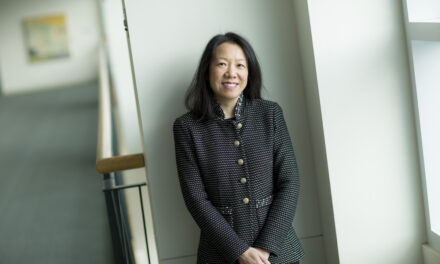By Elizabeth Howell
Managing Editor
Over his time as a Virginia social worker and U.S. Navy veteran, English Language and Literature Ph.D. candidate Dominick Rolle witnessed the destruction of families due to intimate partner violence (IPV).
Now, Rolle is teaching Emory students about the prevalence and underlying causes behind violence against women in intimate partner relationships, through an interdisciplinary course that will be offered for the fourth time this spring.
Titled “Male Intimate Partner Violence Against Women: Bridge Theory and Practice,” the class is cross listed in Interdisciplinary Studies, African American Studies and Women’s, Gender and Sexuality Studies. Along with Rolle, Executive Director of nonprofit organization Men Stopping Violence (MSV) Ulester V. Douglas, Faculty Curator of African American Collections and Assistant Professor of African American Studies Pellom McDaniels will instruct the course.
The class begins with an examination of the MSV community-accountability model, which is based on an article read in the course, according to Rolle.
“The thesis is that, although men are the primary perpetrators of intimate partner violence, society as a whole plays a role in the perpetuation of patriarchal values and is responsible in part for intimate partner violence at different levels,” Rolle said.
Rolle said that the course also looks at tactics used by offenders and choices available to women to prevent and stop abusers.
He added that tactics is a particularly appropriate term to use due to its association with warfare.
“There is a war going on regarding the assault of women’s bodies,” he said. “Not only is intimate partner violence commonly used as a weapon of war through history … but we’re interested in these instances of aggression, from micro-aggression to full-fledged physical assault and sexual assault.”
The course additionally addresses ways in which fraternity life, athletic teams and university policies perpetuate IPV on college campuses.
“We’re interested in how those organizations can serve in many positive ways as community building organizations, but we’re also interested in the underbelly of that, and how IPV is perpetuated through those institutions as well and protected by university bodies,” Rolle said.
Past students such as Nicole Blumenkehl (’13C), who took the class during her senior year at Emory, also noted how the course raised awareness of the impact of IPV.
“[The course] made me cognizant of the prevalence of domestic violence within the Emory community,” Blumenkehl said.
Among others, topics in the course include the nature of sexual violence, how women’s positions in the world – race, gender, class, ethnicity, religion, disability and immigration status – affect their ability to report IPV, why women choose to stay in relationships and IPV through Emory’s archives, Rolle said.
Additionally, students have the opportunity to pursue an internship with MSV. Rolle said about three to four students usually take advantage of this opportunity. The MSV internship is one of many aspects of the course that integrate theory and practice, which Rolle said was the most important part of the course.
“We want students to really feel and empathize with survivors of intimate partner violence,” he said. “We want them to develop an activist sensibility so that they can become ambassadors for this issue, so they can become involved in their larger communities as student activists.”
Rolle wants to encourage more men to take his class. College senior Justin Hung took the class and said the course had a direct affect on his life outside of the classroom.
“I began to more closely consider my own actions and speech around others,” Hung wrote in an email to the Wheel. “MSV gave me a perspective that anyone may say or do something that seemed insignificant but greatly affect others, such as a careless word on my part or such.”
Rolle said that students empathize with people who have been dislocated by IPV through guest lectures. Former abusers, women who were once abused and now serve as advocates, nonprofit leaders, legal advocates, members from Emory’s Respect Program and a female veteran have all visited the class in the past.
“The most meaningful part of the course was actually getting to hear from speakers that dealt with different forms of abuse and how to characterize certain behaviors as abuse,” Justin Speller (’14C) said. He took the class in spring 2014.
Blumenkehl agreed, adding that not only guest speakers but also student’s personal stories made for very powerful class discussions and “allowed students to realize the real-life implications of domestic violence on people.”
Speller, who studied Anthropology and Human Biology, said he took the course because he wanted to learn about a topic outside of his major.
“It was very different and the course style was something that differed from the rest which really intrigued me,” he said.
According to Rolle, while many students who take the class are pre-med or Women’s, Gender and Sexuality Studies majors, students of various backgrounds bring different strengths and perspectives to the table.
Additionally, he expects the course to be a meaningful experience for all students who choose to enroll.
“I want students to, on a personal level, be prepared to make wise decisions regarding healthy relationships in their lives [and] to be prepared to be a support, to be an advocate for friends, family members and others in their communities who might be experiencing intimate partner violence,” Rolle said.
– By Lizzie Howell, Managing Editor
The Emory Wheel was founded in 1919 and is currently the only independent, student-run newspaper of Emory University. The Wheel publishes weekly on Wednesdays during the academic year, except during University holidays and scheduled publication intermissions.
The Wheel is financially and editorially independent from the University. All of its content is generated by the Wheel’s more than 100 student staff members and contributing writers, and its printing costs are covered by profits from self-generated advertising sales.





